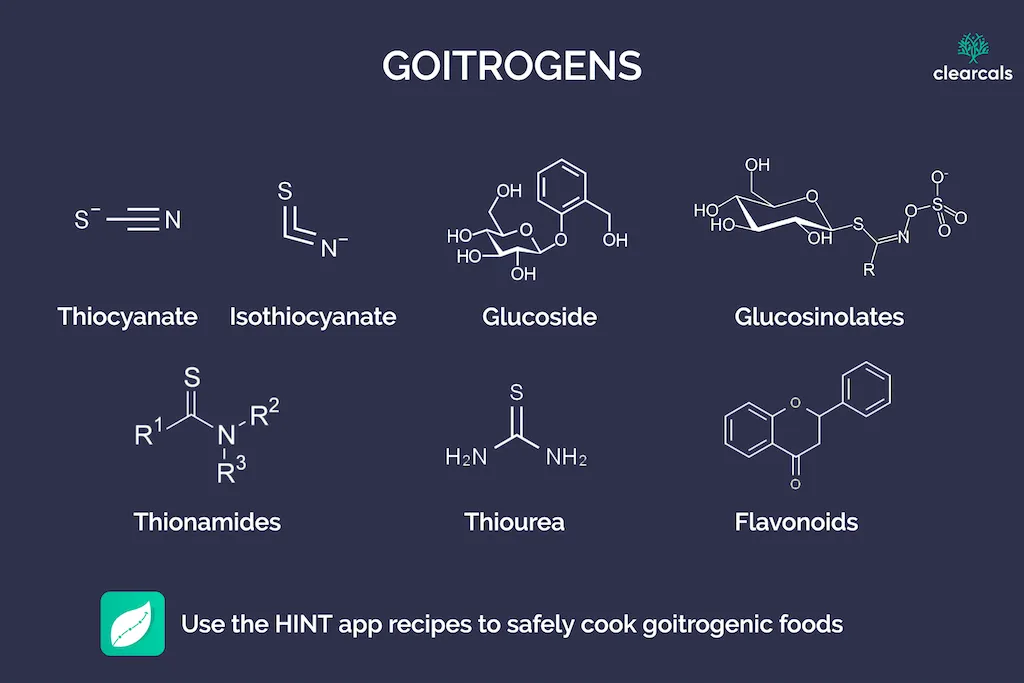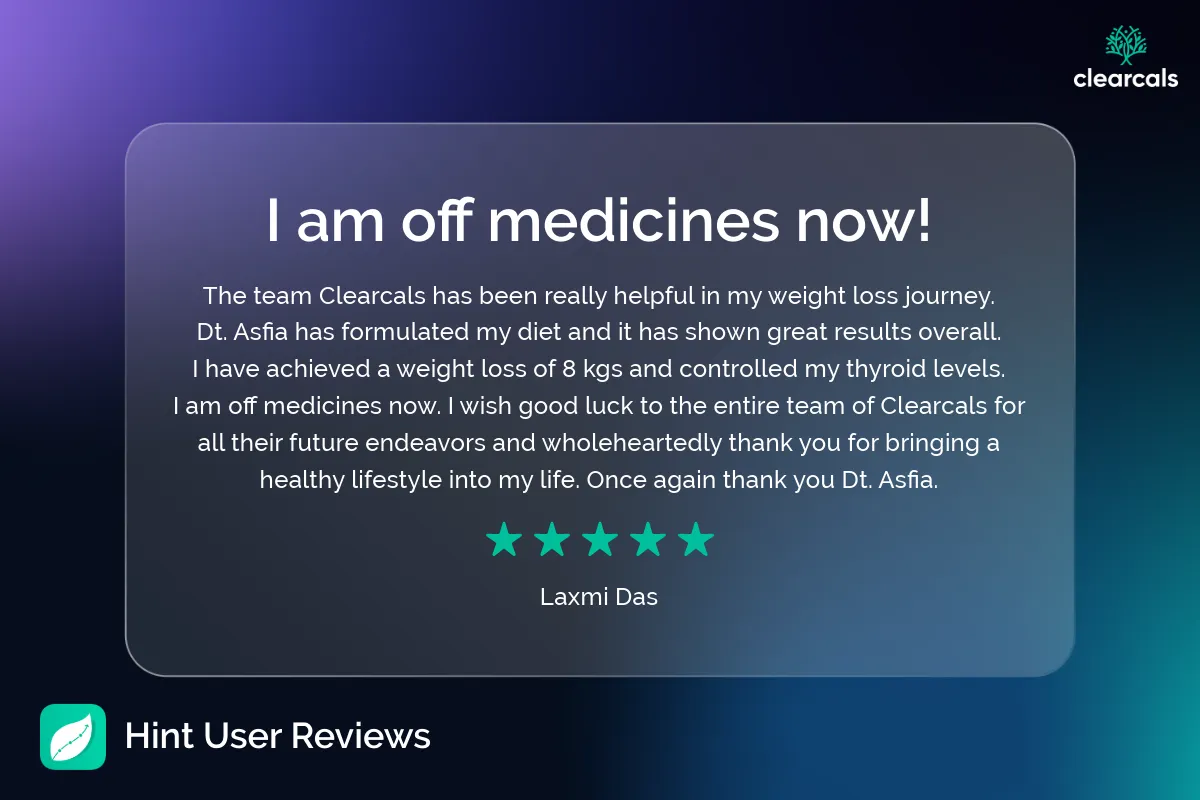Looking for a Personalized Diet Plan?
Goitrogenic Foods and Hypothyroidism: What You Need to Know

Hypothyroidism, a condition where the thyroid gland underproduces hormones, can significantly impact your metabolism, energy levels, and overall health.
Understanding how certain foods, particularly goitrogenic ones, interact with thyroid function is key to managing this condition effectively.
With the Hint app, users can access a personalized hypothyroidism diet plan through Hint Pro and receive expert guidance from dietitians via Hint Premium.
In this blog, we’ll explore goitrogenic foods, their impact on thyroid health, and how the Hint app can help you manage hypothyroidism with a tailored approach.
What Are Goitrogenic Foods?
Goitrogenic foods contain naturally occurring substances that interfere with thyroid hormone production. These compounds include:
- Glucosinolates: Found in cruciferous vegetables like cabbage and broccoli.
- Cyanogenic Glucosides: Found in bamboo shoots, cassava, and sweet potatoes.
- Isoflavones: Found in soy products.
- C-glycosylflavones: Found in pearl millet.
How Do Goitrogenic Foods Affect Thyroid Function?
Goitrogens disrupt thyroid function by:
- Blocking Iodine Uptake: Compounds like glucosinolates and thiocyanates compete with iodine, essential for thyroid hormone synthesis.
- Inhibiting TPO (Thyroperoxidase): This enzyme is critical for hormone production, and goitrogens can impair its activity, reducing thyroid hormone levels.
For individuals with hypothyroidism, managing the intake of these foods is crucial.
Which Foods Are Considered Goitrogenic?
Cruciferous Vegetables and Fruits
- Vegetables: Broccoli, cauliflower, cabbage, kale, radish, mustard greens.
- Fruits: Peaches, plums, cherries, strawberries, and apricots.
Soy Products
- Foods like tofu, soy milk, and soybeans contain isoflavones that may interfere with thyroid hormone synthesis.
Pearl Millet
- Rich in compounds that inhibit TPO, making it difficult for the thyroid gland to produce hormones.
Can You Eat Goitrogenic Foods with Hypothyroidism?
Yes, but with precautions. Goitrogenic foods are rich in essential nutrients and can be included in a balanced diet if prepared correctly:
- Cooking Techniques: Boiling, steaming, roasting, or sautéing can reduce the goitrogenic potency of these foods.
- Blanching: For greens like spinach, blanching before cooking helps minimize their impact on thyroid health.
For example, spinach used in palak saag can be blanched to reduce its goitrogenic properties, making it safer for individuals with hypothyroidism.
Hint Premium dietitians can guide you on safe preparation methods and portion sizes for these foods.
Personalized Hypothyroidism Diet Plan with Hint
Hint Pro
- Provides a customized diet plan tailored to your thyroid condition, dietary preferences, and nutritional needs.
- Includes detailed recipes and preparation tips for managing goitrogenic foods.
Hint Premium
- Offers unlimited consultations with dietitians to address specific concerns like goitrogenic food consumption and nutrient deficiencies.
- Personalized guidance ensures that your diet supports thyroid health while including your favorite foods.

Key Nutrients for Thyroid Health
- Iodine: Essential for thyroid hormone production. Found in iodized salt, seafood, and dairy.
- Selenium: Supports thyroid function and reduces inflammation. Found in Brazil nuts, sunflower seeds, and eggs.
- Zinc: Helps convert T4 to T3 (active thyroid hormone). Found in pumpkin seeds, chickpeas, and lentils.
The Hint app’s diet summary feature allows you to track your daily intake of these critical nutrients, ensuring a balanced and effective hypothyroidism diet plan.
Benefits of Managing Hypothyroidism with Hint
1. Customized Diet Plans
Hint Pro delivers a tailored hypothyroidism diet plan that addresses your unique needs.
2. Expert Guidance
Hint Premium dietitians provide strategies to safely include goitrogenic foods and optimize thyroid health.
3. Nutrient Tracking
Log meals and monitor iodine, selenium, and zinc intake using the Hint app’s diet summary feature.
4. Practical Recipes
Access easy-to-prepare, nutrient-rich recipes designed to support thyroid function.
Conclusion
Managing hypothyroidism requires a nuanced approach to diet and lifestyle.
With the Hint app, you gain access to a personalized hypothyroidism diet plan and expert support to navigate dietary challenges, including the safe consumption of goitrogenic foods.
By leveraging the app’s features and working with dietitians through Hint Premium, you can optimize your thyroid health while enjoying a diverse and balanced diet.
Start your journey to better thyroid management today with the Hint app!






